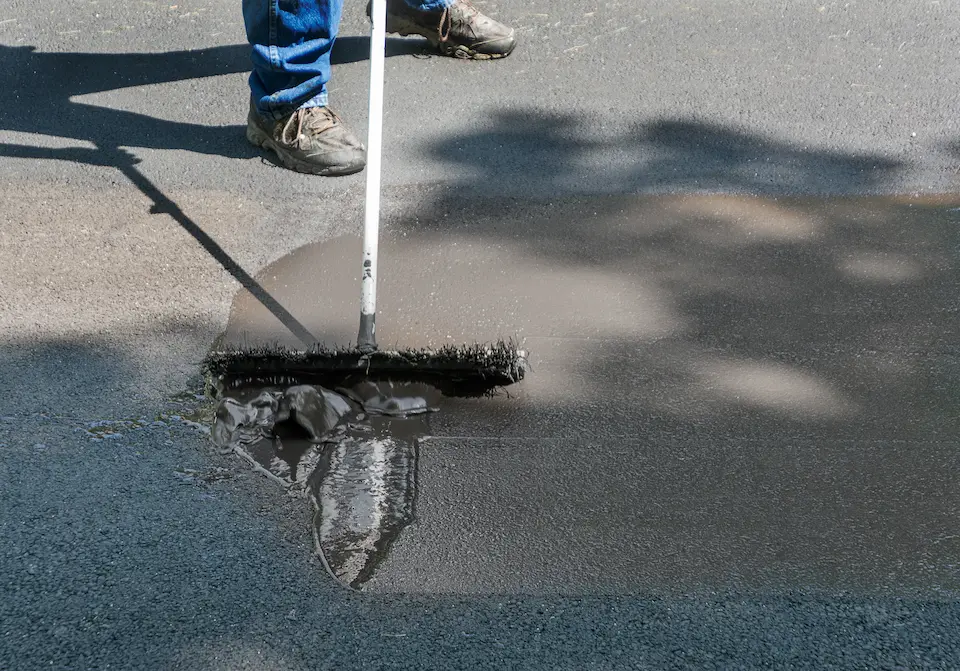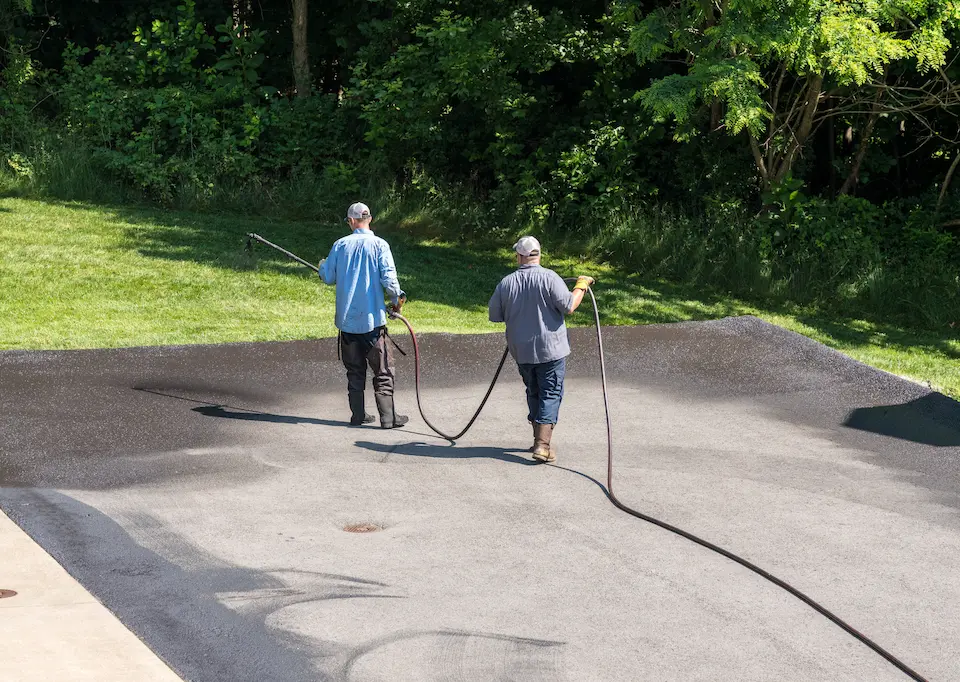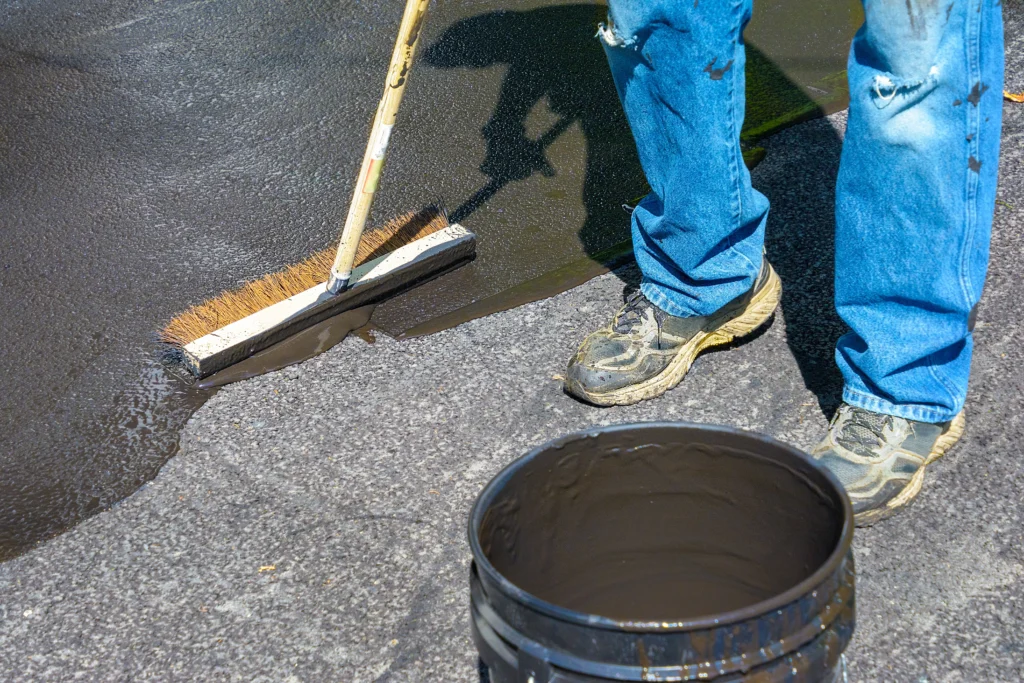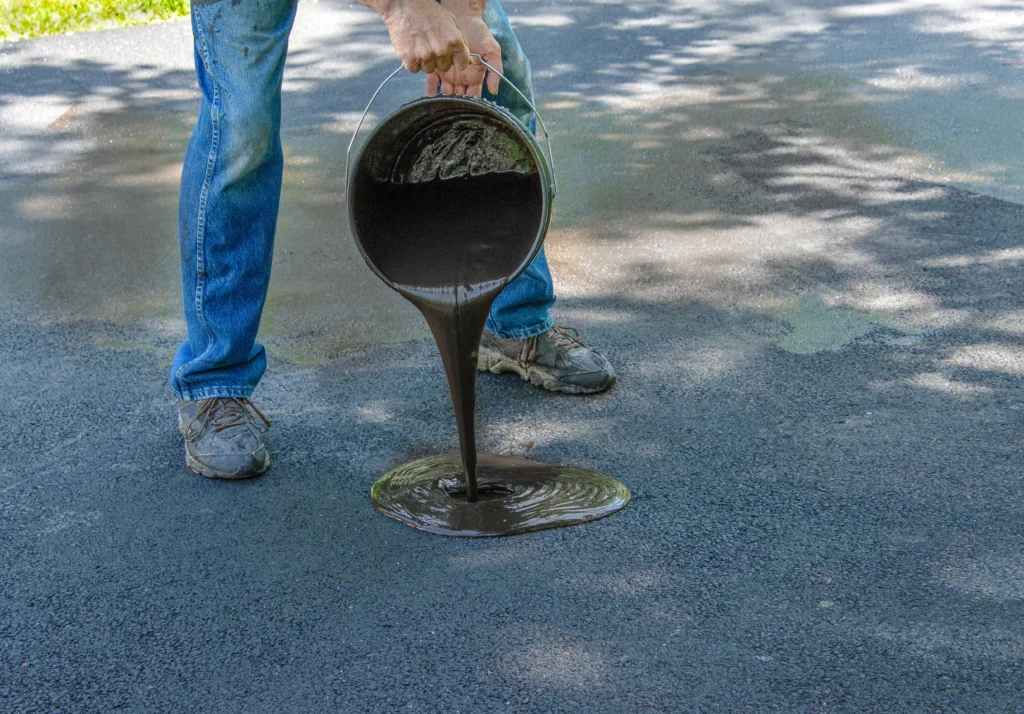
Asphalt Driveway Maintenance and The Importance Of Sealcoating
If you’re wondering if asphalt sealcoating is worth it, the short answer is yes! Your driveway is one of the first impressions people will get of your home or business. If it doesn’t look like you take care of your driveway, what does that say about the rest of your property?
Sealcoating your driveway is one of the best ways to improve and maintain your driveway as well as make any needed repairs. We’re going to tell you about the benefits of sealcoating your driveway, look at the costs, and answer some of the most frequently asked questions about the topic.
Let’s get started!
Benefits of Sealcoating
Over time, traffic, and the elements can wear out and impact your asphalt surfaces. The result? Hard, brittle surfaces that are more prone to cracks. Sealcoating is the answer to solving these problems.
Here are some of the benefits to consider:
Extend the Lifespan of Your Fresh Asphalt Driveway
Sealcoating slows down the oxidation process by filling and sealing small cracks. It adds a protective layer to block out elements that will damage your asphalt. You also end up with a slip-resistant surface that looks amazing!
Protect Against UV Rays, Water, and Other Environmental Elements
When you don’t sealcoat your driveway, you leave it vulnerable to the sun’s UV rays as well as water damage. When water seeps into small cracks and freezes, it expands, leading to larger cracks. Sealcoating can eliminate this damage by sealing in the small cracks to help keep water out.
The sunlight can also damage your asphalt driveway. Sealcoating helps to fill surface voids and protects your asphalt surfaces from the sun.
Prevent Cracking, Potholes, and Other Damage
When your pavement is damaged, you’ll start to notice more chips and cracks in your driveway. These can lead to potholes if you ignore them. By sealcoating the area, you prevent potholes and keep your driveway and parking lots in good shape.
Sealcoating can also help when it comes to oil stains. Car fluids and oil stains not only look unsightly but can also cause your surfaces to deteriorate. By sealcoating these surfaces, you can prevent these stains from causing damage.
Enhance the Overall Appearance of Your Driveway
When people pull up to your home or business, you want them to have a positive impression. If your driveway is full of cracks and holes, this doesn’t help you reach your goals. Sealcoating improves curb appeal which can also add value to your property.

The Cost of Sealcoating
Sealcoating can cost anywhere between $0.15 and $0.35 per square foot. This is typically less expensive than repairing cracks and potholes that can form by not protecting your driveway. When you neglect these issues, it can also lead to damage to your driveway’s foundation, resulting in more expensive repairs.
By sealcoating every two or three years, you not only protect your driveway but also avoid costly repairs.
The Cost to Repair or Replace a Damaged Asphalt Surface
Replacing a damaged asphalt surface can be expensive. The average cost for asphalt replacement is anywhere between $1 and $2 per square foot. This is in addition to curb installation and line striping if necessary.
When to Seal Coat Your Driveway
Sealcoating year-round is not recommended. You should avoid sealcoating when the temperature falls below 50 degrees Fahrenheit. The ground temperature needs to be more than 50 degrees Fahrenheit for your pavement to dry quickly. This is why sealcoating in the winter and colder months is not recommended. When you sealcoat at a temperature below 32 degrees Fahrenheit, the sealer film will either shatter or not bond.
It is recommended to sealcoat between May and October. This gives you the best chance of having optimal temperatures and for your pavement to dry out fully. Many people choose to sealcoat their driveways during the summer months because of the optimal weather conditions.

The Process of Sealcoating
If you choose to sealcoat your driveway or parking lot, you can expect the following process:
- Trimming of any overhanging grass on the pavement
- Cleaning the entire pavement area.
- Heat flashing if any oil or petroleum parks
- Filling of any cracks
- Brushing on the sealcoating material
Once the sealcoating process is complete, it should be untouched for 48 hours to dry properly.
Common DIY Sealcoating Mistakes and Risks
Some people try to make sealcoating their driveway or parking area a DIY project. But you can run into many problems that don’t make it worth the struggle.
Using too much sealer or the wrong kind
Using too much sealer is only going to hurt your pavement and lead to premature cracking. You may also choose the wrong one which can lead to more damage.
Using the wrong tools
When people try to sealcoat their driveways themselves, they run the risk of using the wrong tools. The professionals have all the right tools at their fingertips which will assure the process will go smoothly. You can’t say the same if you try to do it yourself.
Not Cleaning the Area Properly
Asphalt needs to be cleaned and dried before the sealcoat process begins. You may not clean it thoroughly which can result in a less than optimal result.
Not Allowing Enough Drying Time
If you want your sealcoating job to last and prevent further cracking, you need to let it dry thoroughly. While this can be difficult if you have a heavy traffic area, it needs to be done to preserve the appearance of your driveway.
While you may think sealcoating your driveway is a cost-effective option to help save money, leaving the job to the professionals at North State Resurfacing can assure the job is done right the first time.

Frequently Asked Driveway Sealing Questions
How Long Does Driveway Sealing Last?
This will depend on the pavement conditions, the amount of rain and oil it’s exposed to, and how much traffic it gets.
How Often Should You Seal Coat Your Driveway?
Sealcoating is typically recommended every 2-3 years, but some jobs can last up to 5 years. Check your asphalt driveway for cracks or other damage so that they can be fixed as soon as possible. If you wait, the problems are only going to get worse and cost you more money.
Can You Drive On A Newly Sealed Driveway?
It is recommended to wait a minimum of 12 hours before driving on a newly sealed driveway. Waiting up to 48 hours is usually the best idea.
Is it Necessary To Repair Cracks Before Seal Coating?
All cracks need to be repaired before sealcoating. If you seal an unfilled crack, it will only continue to grow under the applied sealant.
Ready To Experience The Benefits Of A Freshly Sealed Asphalt Surface? Contact North State Resurfacing Today
If you’re ready to see the benefits of sealing a driveway, call North State Resurfacing today. Our team of professionals offers quality work at affordable prices. Call us today at (919) 365-7500 or reach out to us online for an estimate.
